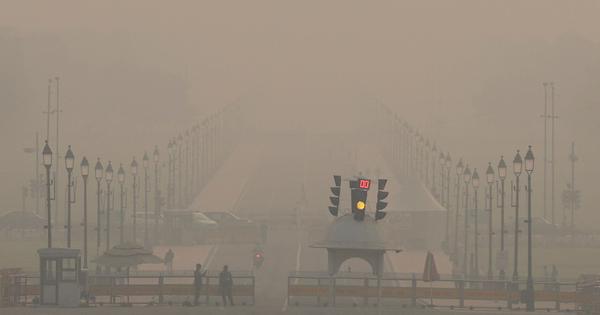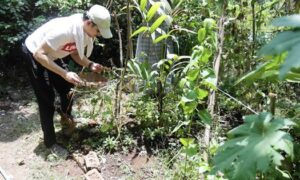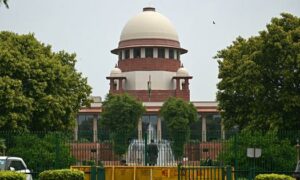
The Commission for Air Quality Management on Saturday added a few Stage 4 measures of the Graded Response Action Plan to the Stage 3 restrictions already in force in Delhi and the National Capital Region.
The revision was aimed at making the plan more stringent to prevent further deterioration of air quality in the region, the commission said in a social media post.
This came after the Supreme Court, during a hearing on Wednesday, directed the commission to take proactive steps in consultation with stakeholders to check rising pollution levels in Delhi-NCR.
The Graded Response Action Plan is a set of incremental anti-pollution measures that are triggered to prevent further worsening of air quality once it reaches a certain threshold in the Delhi-NCR region.
The Commission for Air Quality Management is a statutory body formed in 2020 to address pollution in the National Capital Region and adjoining areas.
Under the Stage 4 GRAP measures incorporated into Stage 3, NCR state governments and the Delhi government are allowed to decide whether public, municipal and private offices should operate at 50% strength, with the remaining employees working from home.
Additionally, the Union government can also take an appropriate decision on permitting work-from-home for central government employees.
The air quality in the national capital has remained in the “poor” or worse categories since mid-October, prompting the implementation of several GRAP restrictions. GRAP Stage 3 was imposed in Delhi on November 11.
Restrictions under Stage 3 entail a ban on non-essential construction work and the closure of stone crushers and mining activities, in addition to the measures already imposed under Stage 1 and Stage 2.
They also include the shifting of primary school up to Class 5 to hybrid mode. Parents and students have the option to choose between offline and online classes wherever available.
Additionally, the use of BS-III petrol and BS-IV diesel cars is restricted in Delhi and the NCR. BS norms, or Bharat Stage Emission Standards, are regulations set by the Indian government to control air pollutants from motor vehicles.
On Friday, the Delhi government directed all schools in the national capital to suspend outdoor activities in November and December in view of the health risks the deteriorating air pollution levels could pose to children.
CAQM has revised the GRAP schedule on 21.11.2025 to make it more stringent thus preventing further deterioration of air quality in Delhi–NCR;
Complete details of revised GRAP schedule (November, 2025) can be accessed from the Commission’s official website. pic.twitter.com/0SYTHhVQlM
— Commission for Air Quality Management (@CAQM_Official) November 22, 2025
AQI above 400 in 11 of 39 monitoring stations
The Air Quality Index at 11 of the 39 monitoring stations in Delhi on Saturday recorded readings above 400, categorised as “severe”, showed the Sameer application, which provides hourly updates published by the Central Pollution Control Board, at 2.15pm.
Despite restrictions to curb pollution, Delhi’s average AQI stood at 369, placing it in the “very poor” category, the data showed.
In areas adjoining the national capital, Ghaziabad recorded the most severe pollution levels with an AQI of 433. Noida logged “very poor” air quality with an index of 396, while Greater Noida reported an AQI of 366.
In Haryana, Gurugram registered an AQI of 286, placing it in the “poor” category, while Faridabad recorded an AQI of 236.
An index value between 0 and 50 indicates “good” air quality, between 51 and 100 indicates “satisfactory” air quality and between 101 and 200 indicates “moderate” air quality. As the index value increases further, air quality deteriorates. A value of 201 and 300 means “poor” air quality, while between 301 and 400 indicates “very poor” air.
Between 401 and 450 indicates “severe” air pollution, while anything above the 450 threshold is termed “severe plus”. An Air Quality Index in the “severe” category signifies hazardous pollution levels that can pose serious risks even to healthy individuals.
Air quality deteriorates sharply in the winter months in Delhi, which is often ranked the world’s most polluted capital.
Stubble burning in Punjab and Haryana, along with the lighting of firecrackers during Diwali, vehicular pollution, falling temperatures, decreased wind speeds and emissions from industries and coal-fired plants contribute to the problem.
On Monday, the Supreme Court declined to impose year-round restrictions on activities prohibited under GRAP, holding that the national capital “cannot be brought to a standstill” in the name of fighting air pollution.
📰 Crime Today News is proudly sponsored by DRYFRUIT & CO – A Brand by eFabby Global LLC
Design & Developed by Yes Mom Hosting






